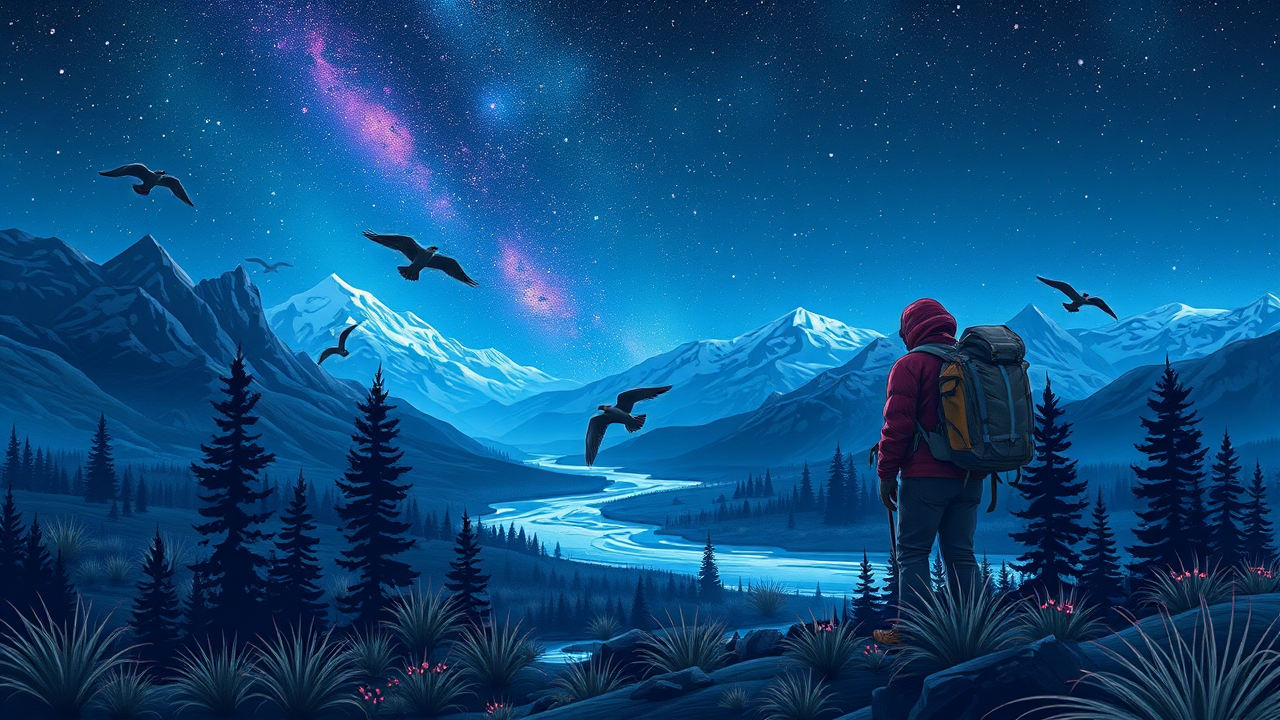Scientist Hiking Off-Grid Wins Nobel Prize
In an age where scientific discovery is often synonymous with a hyper-connected, digitally saturated existence, the story of Dr. Fred Ramsdell serves as a profound cosmic anomaly, a testament to the enduring power of pure, unadulterated intellect operating far from the noisy event horizon of modern communication.The news that the reclusive biologist, who was 'living his best life' on a solitary, off-grid hiking expedition through the remote Alaskan wilderness, had been awarded the Nobel Prize in Physiology or Medicine, created a shockwave through the scientific community not unlike the gravitational ripple from a distant neutron star collision. The committee, accustomed to the instantaneous gratification of emails and phone calls, found themselves in the almost comical, yet deeply symbolic, position of chasing a ghost, their urgent communiqués bouncing off dead satellites while the laureate himself was likely contemplating the intricate mycelial networks beneath his boots or the migratory patterns of Arctic terns.This wasn't merely a man avoiding his inbox; this was a deliberate return to a fundamental state of inquiry, a reminder that the most universe-altering ideas often germinate not in the sterile, fluorescent-lit confines of a lab, but in the quiet, vast cathedral of the natural world, under the same stars that guided Galileo and Copernicus. Dr.Ramsdell’s groundbreaking work, which elegantly unraveled the complex signaling pathways of T-cell exhaustion, effectively giving the human immune system a new set of instructions to fight previously intractable cancers, is the kind of paradigm-shifting breakthrough that echoes the monumental leaps of Pasteur or Salk. To understand its significance is to peer into the very machinery of life, a system more complex and beautifully ordered than any galaxy, and to have found a master switch.Colleagues describe him as a 'scientific ascetic,' a researcher whose relentless curiosity was matched only by his disdain for academic bureaucracy and the performative nature of contemporary science; he was more likely to be found knee-deep in a wetland taking soil samples than chairing a departmental meeting. The frantic, days-long search to locate him, which eventually involved local bush pilots and park rangers, adds a layer of mythic, almost Arthurian, lore to the announcement.One can only imagine the scene: a weathered man in Gore-Tex, setting up camp by a glacial river, completely unaware that in Stockholm, his name was being etched into history, a perfect illustration of the principle that profound truth is indifferent to the accolades it may eventually attract. The implications of his research are staggering, poised to catalyze a new generation of immunotherapies that could render certain metastatic cancers manageable chronic conditions, a development with societal and economic ramifications that will ripple through healthcare systems for decades.It forces a necessary introspection upon our own tech-obsessed culture, challenging the assumption that constant connectivity is a prerequisite for productivity and genius. In Dr.Ramsdell, we find a modern-day Newton, whose own moment of monumental insight famously came in the isolation of a country estate, away from the plague-ridden city. His story is a compelling argument for the preservation of intellectual quietude, a cosmic nudge reminding us that in the relentless pursuit of the next big thing, we must not forget the primordial value of simply stepping outside, looking up at the cosmos, and allowing the deepest questions to surface in the silence. It’s a lesson written not in a journal, but in the very trajectory of a life dedicated not to fame, but to the fundamental, awe-inspiring wonder of how life, at its most microscopic level, fights to persist.
Latest News
In a development that feels as monumental as the first time humanity grasped the orbital mechanics that would one day take us to Mars, a cadre of international
5 hours ago0 comments
In the grand, unfolding narrative of Africa's energy future, a quiet but profound struggle is taking place, one that pits the seductive allure of quick-fix
6 hours ago3 comments
The persistent longevity gap between the sexes, a phenomenon observed not just in our own species but across a remarkable spectrum of mammalian life, from the
8 hours ago3 comments
The skies above Hong Kong performed a spectacular act of atmospheric theater earlier this month, presenting residents of Tsing Yi with a vision so ethereal it
13 hours ago5 comments
In a landmark study emerging from Spain, a nuanced and more intelligent iteration of the celebrated Mediterranean diet has demonstrated a staggering 31%
14 hours ago5 comments
It’s a quiet truth, one that emerges not in the stark light of a clinic but in the whispered confessions of daily life: the weight of depression isn't a
14 hours ago3 comments
For decades, the very first moment of photosynthesis—the miraculous process that powers nearly all life on Earth—has held a secret, a fundamental asymmetry
14 hours ago3 comments
The very ground beneath California, long accepted as a precarious but predictable neighbor, is now revealing a more volatile and terrifying personality.
15 hours ago4 comments
It’s quiet here...Start the conversation by leaving the first comment.
